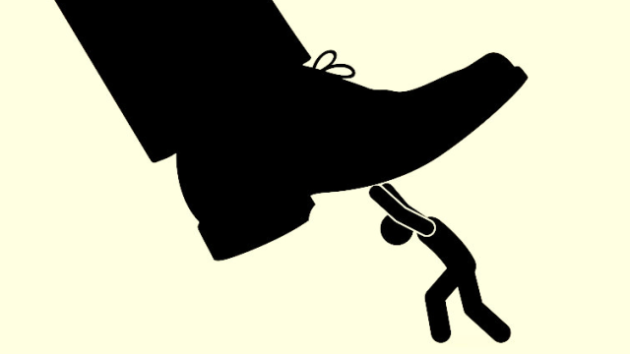Where Is Speech Most Restricted in America? by George C. Leef
A good argument can be made that free speech is least safe on private college campuses.
At public universities, the First Amendment applies, thus giving students, faculty members, and everyone else protection against official censorship or punishment for saying things that some people don’t want said.
A splendid example of that was brought to a conclusion earlier this year at Valdosta State University, where the school’s president went on a vendetta against a student who criticized his plans for a new parking structure — and was clobbered in court. (I discussed that case here.)
But the First Amendment does not apply to private colleges and universities because they don’t involve governmental action. Oddly, while all colleges that accept federal student aid money must abide by a vast host of regulations, the Supreme Court ruled in Rendell-Baker v. Kohn that acceptance of such money does not bring them under the umbrella of the First Amendment.
At private colleges, the protection for freedom of speech has to be found (at least, in most states) in the implicit contract the school enters into with each incoming student. Ordinarily, the school holds itself out as guaranteeing certain things about itself and life on campus in its handbook and other materials. If school officials act in ways that depart significantly from the reasonable expectations it created, then the college can be held liable.
As the Foundation for Individual Rights in Education (FIRE) puts it, “There is a limit to ‘bait-and-switch’ techniques that promise academic freedom and legal equality but deliver authoritarianism and selective censorship.”
With that legal background in mind, consider a recent case at Colorado College. If Franz Kafka or George Orwell had toyed with a similar plot, they’d probably have rejected it as too far-fetched.
Back in November, a student, Thaddeus Pryor, wrote the following reply to a comment (#blackwomenmatter) on the social media site Yik Yak: “They matter, they’re just not hot.” Another student, offended that someone was not taking things seriously, complained to college officials. After ascertaining that the comment had been written by Pryor, the Dean of Students summoned him to a meeting.
Pryor said that he was just joking. What he did not realize is that there are now many things that must not be joked about on college campuses. Some well-known American comedians have stopped playing on our campuses for exactly that reason, as Clark Conner noted in this Pope Center article.
In a subsequent letter, Pryor was informed by the Senior Associate Dean of Students that his anonymous six word comment violated the school’s policy against Abusive Behavior and Disruption of College Activities.
Did that comment actually abuse anyone? Did it in any way disrupt a college activity?
A reasonable person would say “of course not,” but many college administrators these days are not reasonable. They are social justice apparatchiks, eager to use their power to punish perceived enemies of progress like Thaddeus Pryor.
For having joked in a way that offended the wrong people, Pryor was told that he was suspended from Colorado College until June, 2017. Moreover, he is banned from setting foot on campus during that time. And in the final “pound of flesh” retribution, the school intends to prohibit him from taking any college credits elsewhere.
With FIRE’s able assistance, Pryor is appealing his punishment. Perhaps the college’s attorney will advise the president to back off since its own “Freedom of Expression” policy hardly suggests to students that they will be subject to severe punishment for merely making offensive jokes on a social media site. If the case were to go to trial, there is a strong likelihood that a jury would find Colorado College in breach of contract.
Even if the school retreats from its astounding overreaction to Pryor’s comment, the administration should worry that alums who aren’t happy that their school has fallen under the spell of thought control will stop supporting it.
This incident is emblematic of a widespread problem in American higher education today: administrators think it’s their job to police what is said on campus, even comments on a social media app. Many colleges and universities have vague speech codes and “harassment” policies that invite abuse; those positions tend to attract mandarins who are not scholars and do not value free speech and unfettered debate. They are committed to “progressive” causes and will gladly use their power to silence or punish anyone who doesn’t go along.
American colleges have been suffering through a spate of ugly protests this fall. Among the demands the protesters usually make is that the school mandate “diversity training” for faculty and staff. Instead of that, what most schools really need is tolerance training, with a special emphasis on the importance of free speech. Those who don’t “get it” should be advised to find other employment.
George Leef is the former book review editor of The Freeman. He is director of research at the John W. Pope Center for Higher Education Policy.




Leave a Reply
Want to join the discussion?Feel free to contribute!